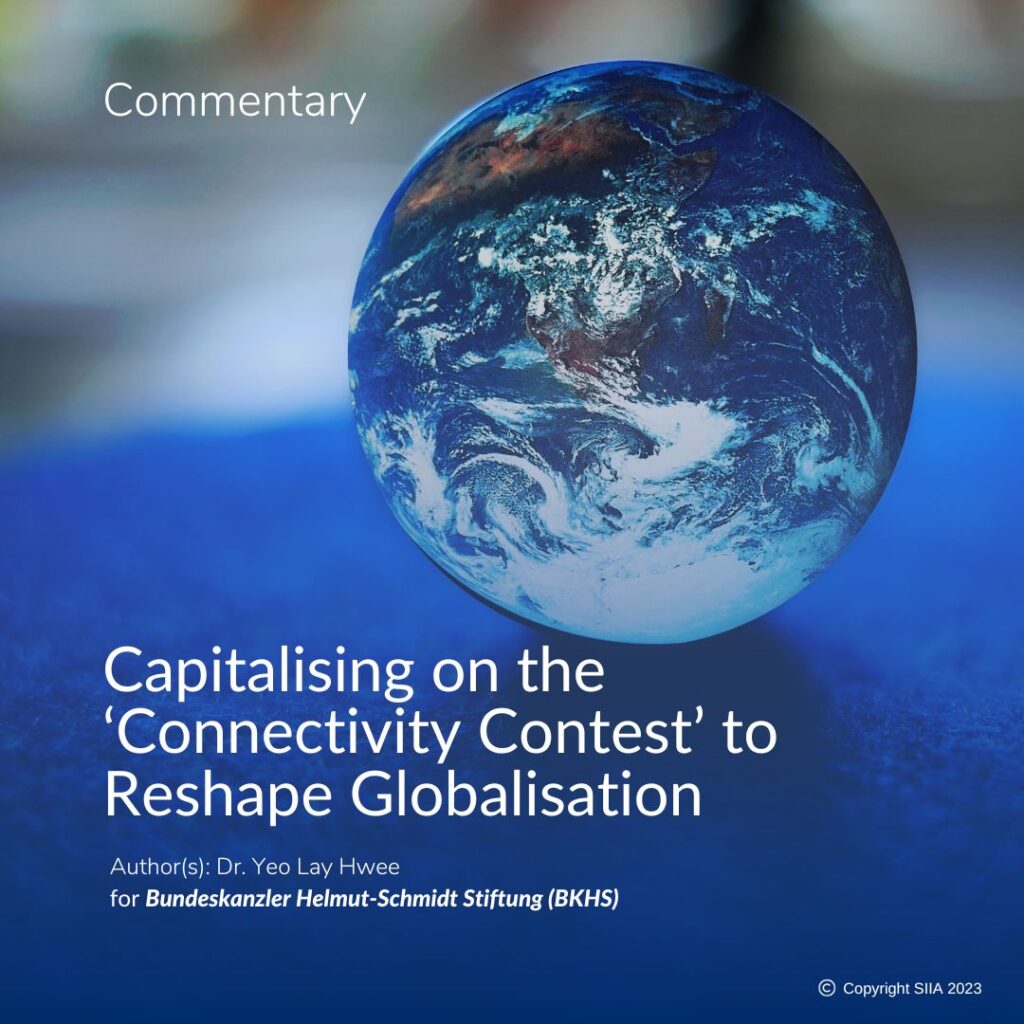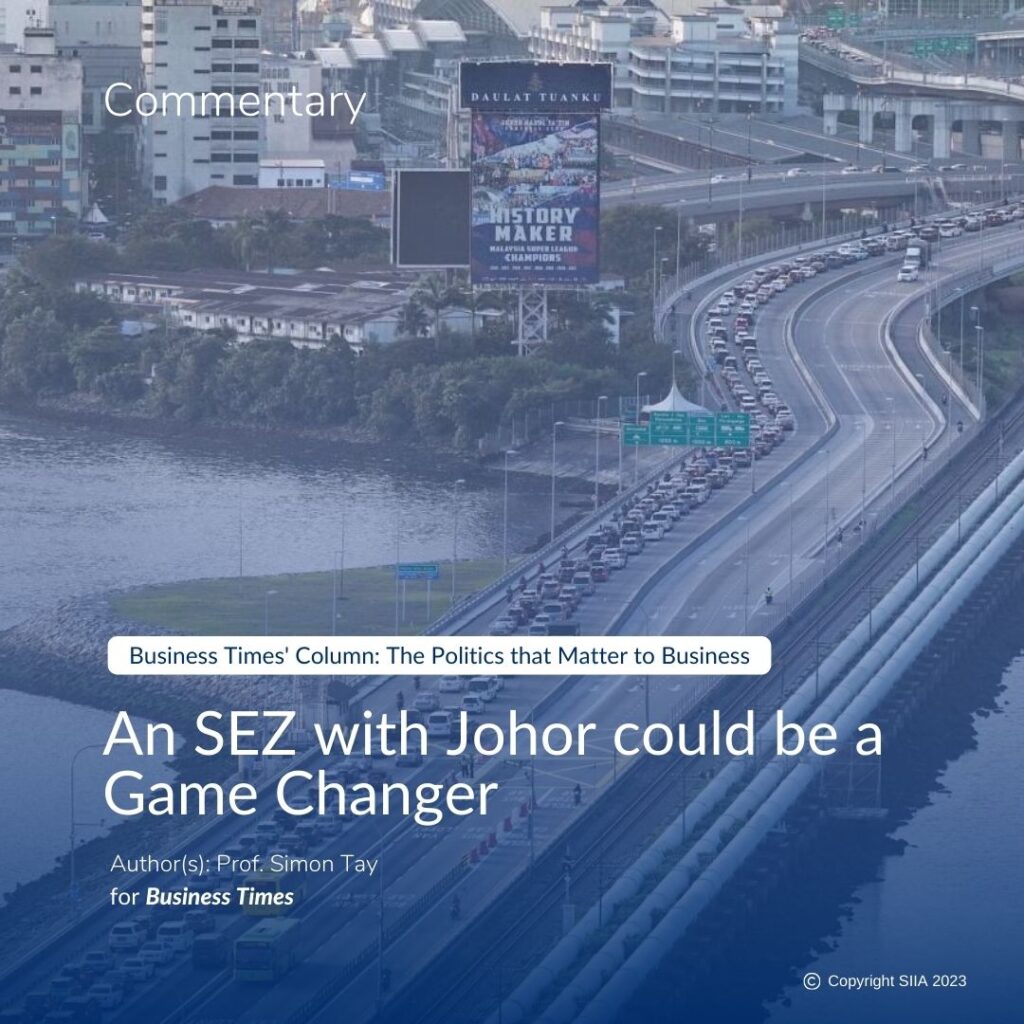By Simon Tay and Liyana Othman
For TODAY
Sustainable development requires cooperation and a balance between economic growth and environmental and social protection.
Often, however, discussions end up with platitudes and vague agreements. Candid dialogue can instead reveal differences, and this is what happened when Malaysia’s Primary Industries Minister Teresa Kok spoke at the 6th Singapore Dialogue on Sustainable World Resources (SDSWR) on May 2.
As widely reported in the media, the Malaysian minister pointedly criticised the Singapore Zoo for “negative messaging” on palm oil.
The crop, a key commodity for Malaysia and South-east Asia as a whole, has been under the spotlight with consumer groups in the West alleging, often emotively, that palm oil production contributes to tropical deforestation and the loss of animal life.
The minister reportedly took offence at a display at the zoo which said that the conversion of forests to palm oil plantation is a serious threat to rainforest animals such as the endangered Borneo orangutan.
“In this case, Singapore Zoo acted possibly in haste and (was) reflecting emotions expressed by some ill-informed visitors,” she added.
In response to Ms Kok, Wildlife Reserves Singapore (WRS) which owns and operates the zoo, has clarified that palm oil is used for cooking in its restaurants — but only if it is certified sustainable, adding that boycotting is ineffective given the oil’s versatility and efficiency.
This exchange about palm oil illustrates a gap in a common understanding of the existence of current palm oil certification schemes, and at the core, a lack of consensus as to what constitutes sustainable palm oil.
WHAT AND WHOSE STANDARDS?
The palm oil approved for use by WRS at its establishments is certified by the Roundtable on Sustainable Palm Oil (RSPO), a global, multi-stakeholder initiative.
The certification principles and criteria were developed through consultations and dialogues between key stakeholder groups in the palm oil supply chain and reflect the industry’s position towards sustainability. Yet, only about a fifth of the world’s palm oil is RSPO-certified.
While Malaysia recognises the RSPO standard, it is making a major push on its own certification scheme, the Malaysia Sustainable Palm Oil or MSPO.
Ms Kok has boldly announced efforts to bring all Malaysian producers and mills up to this standard by end-2019, and is on a mission to get consumers to accept and buy MSPO-certified palm oil.
Both the RSPO and Malaysian standards strive to minimise the negative environmental impact brought about by the palm oil industry, and foster a positive social contribution.
RSPO provides the strongest certification standards for biodiversity and human rights protection, but it faces criticism for being too sluggish and lenient on errant growers.
There are also questions surrounding its transparency, and in turn, legitimacy.
On the other hand, national standards like MSPO, while not as comprehensive as RSPO, are easier to implement particularly for smallholders, and are considered a stepping stone for palm oil growers to achieve the more robust RSPO certification.
Setting a good but lower standard may therefore be more realistic to help these smallholders make more modest but real improvements.
The Malaysian government is encouraging this first step, like the recent announcement by Finance Minister Lim Guan Eng to allocate RM500 million (S$163.9 million) in loans targeted at smallholders to replace their aging oil palm trees. The country is also looking to make the MSPO standard more robust to meet international expectations.
As it gains traction, major buyers of palm oil and key conservation institutions like WRS may well wish to re-evaluate if the MSPO sufficiently meets their expectations and those of their customers.
However, besides these two certification schemes, there are five other sustainability standards that the palm oil industry adheres to. There is, as such, an emerging need to reconcile these and other different schemes, and not by creating another certification standard.
Rather, efforts to align the existing approaches can provide greater transparency and accountability.
One such effort that was previewed at the SDSWR is the Accountability Framework initiative, spearheaded by a group of global non-government organisations.
The initiative aims to develop a common set of norms and guidelines for companies and other stakeholders in the agroforestry industry to eliminate environmental destruction and human exploitation from their supply chains.
Yet some consumers may not be satisfied even with all these standards. New regulations by the European Union (EU) on biofuels is one example of this.
Facing pressure from lobbies and consumers, the EU recently stated that palm oil contributes to deforestation and in turn, high greenhouse gas emissions, and will be phased out by 2030. There are exceptions for palm oil produced by independent smallholders or on unused land.
This seems to go beyond what any of the existing certificates’ measures try to meet. Even if well intended, unrealistic expectations can harm.
One concern about the new European regulations is that they will not lead palm oil producers to advance on sustainable practices but merely to shift their markets. For Indonesia, only around one fifth of its palm oil exports goes to the EU countries.
The biggest and growing markets are China and India, which at present make little demands about deforestation. The same can be said about Singapore — despite its affluence and a per capita consumption that is 10 times higher than the global average, there is low awareness of sustainable palm oil.
Additionally, the Indonesian government also plans to increase domestic demand by increasing the percentage of palm oil that is blended with gasoline sold for cars and other vehicles.
As such, rather than nudging for better environmental protection, over-ambitious environmental standards can lead producers to rationally look to sell to others elsewhere.
Blunt policy instruments give rise to such unintended consequences. Ms Kok was therefore right to warn against a blanket acceptance of campaigns and demands made by developed countries.
A closer evaluation of the facts and of emerging market conditions is instead the right response — much as WRS has done by endorsing sustainable palm oil.
Sustainability issues attract considerable attention and emotion. But they are often complex, and cooperation and balance are needed as Asian economies and consumer demands grow, if the global environment is not to be sacrificed.
When differences and controversies arise, common consensus can be achieved but the best outcomes will require open conversations and rational, nuanced responses.
ABOUT THE AUTHORS
Simon Tay is chairman of the Singapore Institute of International Affairs (SIIA) and an associate professor of international law at the National University of Singapore. Liyana Othman is senior policy research analyst (sustainability) at SIIA. This commentary was first published in TODAY on 9 May 2019.




